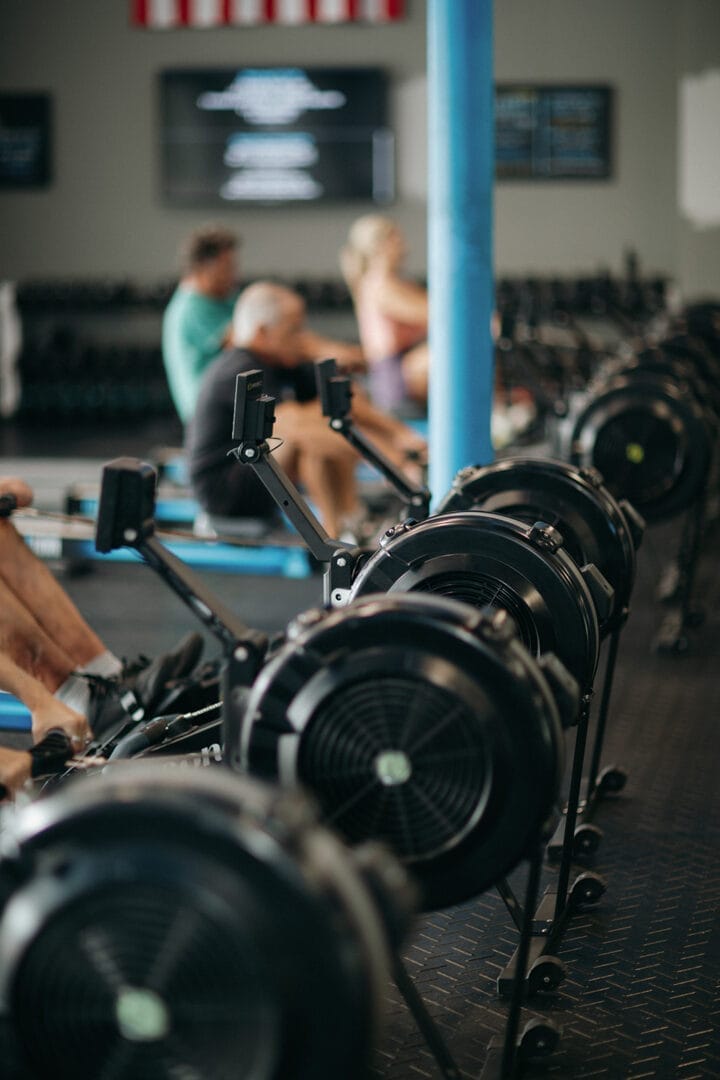Here’s a big question in the fitness world: Do you need machines to get fit?
The short answer: No.
Here’s a very quick history lesson: Before the 1950s, gyms didn’t have machines, just barbells, dumbbells, kettlebells and other similar implements. And people got fit!
In the ‘50s, the first machines appeared. In the beginning, they were homemade, but soon they became more advanced, and then large Universal gym stations appeared. Before long, Universals were everywhere. In the ‘70s, expensive and more complex Nautilus machines were all the rage. By the mid-‘80s, even more advanced machines were designed, and the “modern gym” was born.
In the 2000s, CrossFit and functional training brought gymnastics equipment, barbells, dumbbells and kettlebells back to the forefront. Other minimalist programs appeared as well, such as Insanity, Tae Bo, P90X and so on.
Functional and minimalist training proved what old-timers already knew: You can get very fit without using any machines at all.
In many of these “throwback gyms,” clients meticulously tracked workout results and saw measurable and impressive increases in strength, endurance, flexibility, balance, agility, speed and power. These improvements were often accompanied by other changes: less body fat, more muscle, weight loss, etc.
As this style of training went mainstream, gyms sprang up all over the world, and an increasing number of people embraced machine-free training with fantastic results. Of course, these gyms often have some machines: treadmills, rowing and ski ergometers, and air bikes are common. Some even have cable stations or a few of the machines often seen in other gyms.
What About Machines?
The machines you see in large commercial gyms aren’t “bad.” They just might not be optimally suited to your goals.
Here’s what we’ve learned from 100 years of evolution in the fitness industry: Coaching and consistency are actually more important than the exact implements you use. And a coach shouldn’t be tied only to one program or set of equipment. A truly great coach works closely with clients to create the best program for each one. The coach will draw from a wealth of knowledge and take into account the client’s preferences and goals.
For some, the program might involve machine training, but others might use free weights and gymnastics movements in one-on-one or group settings. Some clients might prefer to train in the basement with common household objects and an online coach.
A good coach helps a client accomplish goals, and that can be done with or without machines.
At our facility, we don’t focus on machines, but we could definitely use them to create a program that would help a client get fitter. Instead, we generally work with body-weight movements and free weights to help people accomplish goals. The benefit of this plan is that it allows us to train the body as a whole using “compound movements.” Machines tend to isolate one body part.
For example, the leg-extension machine is for the quads.
Now think about a barbell squat: It works the quads and all the other leg muscles, as well as your abs and spinal erectors. Good lifters even use their upper backs and shoulders in squats. We use barbells, dumbbells and other objects because you can train a host of muscles at once—including the core.
This style of training has many benefits: You work more muscles in less time, you improve core strength, you train the body as a whole, and you generate an impressive metabolic response that causes your body to make positive changes.
We also track progress so you don’t have to wonder if you’re getting fitter. Your results will prove it, and our coaches will constantly check in to make adjustments to the plan to ensure you’re on track.
So machines can be used in a fitness program, but they aren’t essential. In fact, other styles of training are more effective if you have certain goals.
The best way to find out what style of training is right for you? Book a consultation with us. We’ll sit down, answer your questions, find out about your goals and then tell you exactly how you can accomplish them.
Meet with a coach and create a plan to improve your fitness!

